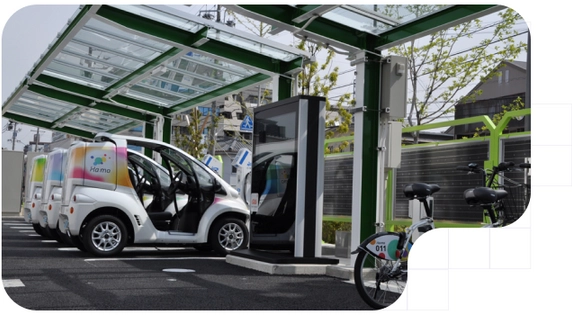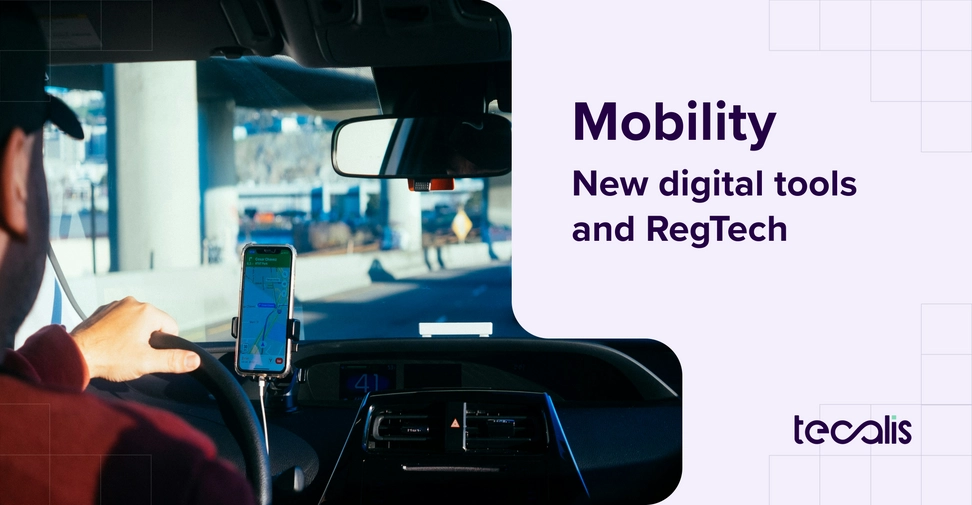Index
Get the latest news right in your inbox
The mobility and transportation industry is undergoing an unprecedented transformation. From micro-mobility to car sharing models, to advances in identity verification and emerging regulations, the challenges and opportunities in this sector are immense.
Adapting to these new demands requires not only innovative technologies, but also solutions that balance security, regulatory compliance and an optimal user experience. Let's see what benefits these translate into and what those solutions are.
Mobility and transportation industry news
One of the biggest changes impacting the industry are new regulations, such as the introduction of digital identities in Europe under the eIDAS 2 framework and the guidelines of regulators such as the Spanish Data Protection Agency in countries like Spain. These digital identities promise to transform the way companies and users interact, improving security and facilitating the verification of personal and professional information, reducing costs in these processes.
In addition, the rise of new business models, such as carsharing, carpooling and flexible renting, has generated a demand for tools that allow companies to efficiently manage interactions with customers, users and drivers. These tools must address everything from identity verification to the electronic signature of contracts, all while maintaining high security standards and complying with regulations such as the GDPR.

Key technologies for digital transformation in industry
We have seen recent developments in the transportation and mobility ecosystem. These are driven both by the emergence of new technologies that support the work of disruptive startups that have transformed the industry with new types of transportation and mobility services, as well as by the need for traditional car rental and purchase companies to innovate and save on costs.
On the other hand, the rise of identity fraud throughout the economy, has forced regulators to be more comprehensive in their requirements to force companies in the industry to put in place technologies such as the following:
Identity Verification (KYC) and doc validation
Identity verification is a fundamental pillar of modern mobility. Solutions such as those offered by specialized companies allow KYC processes to be carried out automatically in mobility, verifying official documents such as ID cards, NIEs or driving licenses in seconds. In addition, they integrate advanced technologies such as:
- Background document reconstruction: eliminates the need to take manual photographs, reducing errors and improving the user experience.
- Active and passive proofs of life: ensure that the user is who he/she claims to be through gestures or biometric verifications.
These solutions not only improve safety and enable companies in the mobility and transportation industry to comply with the most stringent regulations in all countries, but also reduce operating costs by automating traditionally manual processes.
Electronic Signature and contracting
The electronic signature (or digital signature) has become an indispensable tool for transportation companies seeking to digitize their operations. This type of technology allows:
- Sign contracts remotely, instantly and securely.
- Guarantee the legal validity of documents and new user registrations.
- Integrate advanced features such as automatic generation of customized contracts.
According to recent studies, companies that implement electronic signature solutions experience time savings of up to 80% in document management.
Process Automation
Automation not only speeds up the onboarding of new customers and drivers, but also minimizes fraud risks. Tools such as checks with the Tax Agency or mobile device checks allow identifying suspicious patterns in real time, ensuring safer and more efficient operations.
Case Studies: Transforming Mobility with Technology

Case 1: Public Transportation in Asturias
An innovative solution implemented in the Asturias public transport network (ConeCTA) allows new users to manage their transport passes digitally. Thanks to a remote identity verification system, they can receive their passes directly at home, eliminating the need to travel to physical offices.
Case 2: Beep & Drive
In the case of a well-known electronic toll platform operating in several countries, the integration of KYC and document verification tools has reduced fraud rates by 35%. In addition, the automation of these processes has significantly reduced registration times for new users, improving customer satisfaction.
Case 3: Renfe and Electronic Signature
Renfe, Spain's leading railway operator, has adopted electronic signature solutions for international contract management. This has not only accelerated approval processes, but also reduced the carbon footprint by eliminating the need for travel to sign agreements.
Challenges and Opportunities
As the industry evolves, companies must face challenges such as:
- Regulatory compliance: the adoption of regulations such as eIDAS 2 requires continuous updating of processes and technologies.
- User experience: finding the balance between security and ease of use remains a key challenge.
- Security and fraud: avoiding regulatory sanctions and saving costs at the same time is possible.
However, these challenges also present opportunities for the mobility and transportation industry to differentiate itself in a competitive marketplace. Companies that invest in agile, customized solutions will be better positioned to meet growing consumer demands.
Resume
The digitization of mobility and transportation is not just a trend, but a necessity to stay relevant in a changing environment. Technologies such as identity verification, e-signatures and process automation not only drive operational efficiency, but also ensure regulatory compliance and improve the user experience, avoiding abandonment rates at key moments.
In a market where security, speed and personalization are priorities, companies that adopt these solutions will lead the way to a more connected and sustainable future. Investing in technology is not a luxury, but an essential and increasingly accessible strategy thanks to RegTech solutions to meet today's challenges and seize tomorrow's opportunities.
























